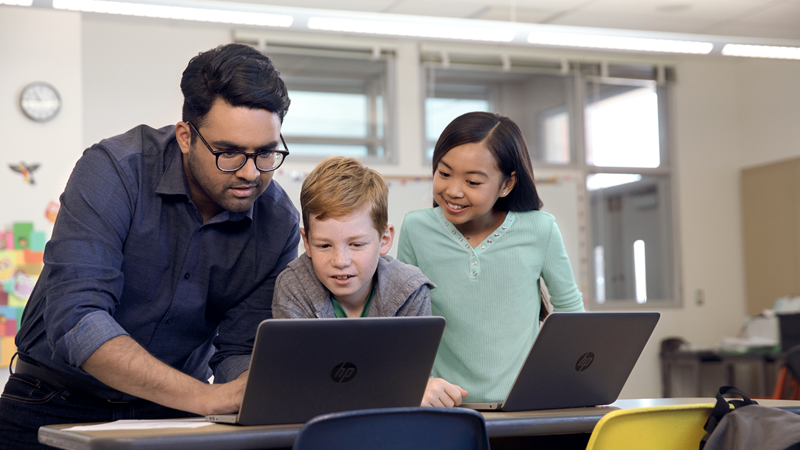It starts with you
"If you can't make a mistake, you can't make anything."
- Marva Collins, acclaimed educator

Model SEL competency
While evidence shows that teachers with higher levels of social emotional competence have more effective classroom management, better retention, and higher academic achievement in their students, very little training is provided to support teacher’s personal SEL. Successful social emotional learning for students begins with having excellent role models.
To effectively teach SEL skills, we first have to recognize our own skills and deficits as educators and commit to our own social and emotional development. This video by Edutopia goes into detail about the importance of adult self-awareness and modeling SEL skills for students.
To start identifying and expanding your own SEL capacities, use the CASEL Personal Assessment and Reflection tool to reflect on your personal SEL strengths and challenges.
Remember, your assessment of yourself is never final! Being an excellent educator hinges on having a growth mindset for ourselves as well as for our students. Having identified your SEL strengths and challenges, set an intention for modeling SEL skills in the classroom - even those that don't come naturally to you! Find some examples for each of the CASEL 5 below.
Self-awareness
Think aloud as you utilize social and emotional skills to explicitly demonstrate your ongoing practice.
- "I'm taking a moment to see why that statement bothered me, I'll come back in just a minute."
Acknowledge your emotions and reactions, and talk about them!
- "I reacted in a way I don't feel good about, can we talk about it?"
Self-management
Demonstrate and explicitly teach executive function skills.
- "I don't know about you, but my desk is messy. I'm going to put a few things where they belong."
Model stress-management.
- "I've got so much on my plate I'm overwhelmed. Let's do 10-minute sprints of work. That means we set a timer and focus on our work, but only for 10 minutes - then we take a breather or a stretch. It helps me feel more focused and less stressed."
To the degree you're comfortable, be transparent with your students about goals you set for yourself and the challenges you face in meeting those goals.
- Demonstrating the variable path from goal setting to achievement for students helps them establish resilience and growth mindset in their own pursuits.
Social awareness
- Co-create norms and expectations with your students. This can serve as a reminder that there are shared values in the classroom, even when there are disagreements.
- Demonstrate collaboration and empathy with adults in your school community.
- Speak highly of the people around you and emphasize their social and emotional skills, "Mrs. Olvira shines at setting and accomplishing goals, maybe we can ask her what her tricks are!"
Relationship skills
Openly ask for help when you need it, voicing your thoughts out loud.
- "I thought I could handle this by myself, but I think I need Mx. Greene's help. I'll write them an email.
Be an active listener for students and model relationship skill by building meaningful relationships with each of them.
Responsible decision-making
Model prioritizing tasks and communicating with stakeholders (treating students as respected stakeholders in your decisions).
- "I promised I would have your papers back to you on Monday so you can make revisions but the principal has asked me to help plan student teacher conferences. If I extend your deadline, is it ok for me to return the papers next Friday?"
Take responsibility for the outcomes of your decisions and let students see that.
- "I didn't go to bed early enough so I'm in no mood this morning. It's not your fault but can I ask you to be patient with me today?"
Create or add to your personal reflection routine.
A healthy teaching practice depends on reflecting and iterating to meet students’ needs. Meeting your personal needs deserves some of that energy too! As you consider how a lesson or school week went, imagine how your own emotional state contributed to the outcomes of your students. What do you need to be at your best?
Science demonstrates that meditation can reduce stress and job strain while improving compassion for ourselves and others. Educators can get the Headspace app and begin a meditation routine for free.